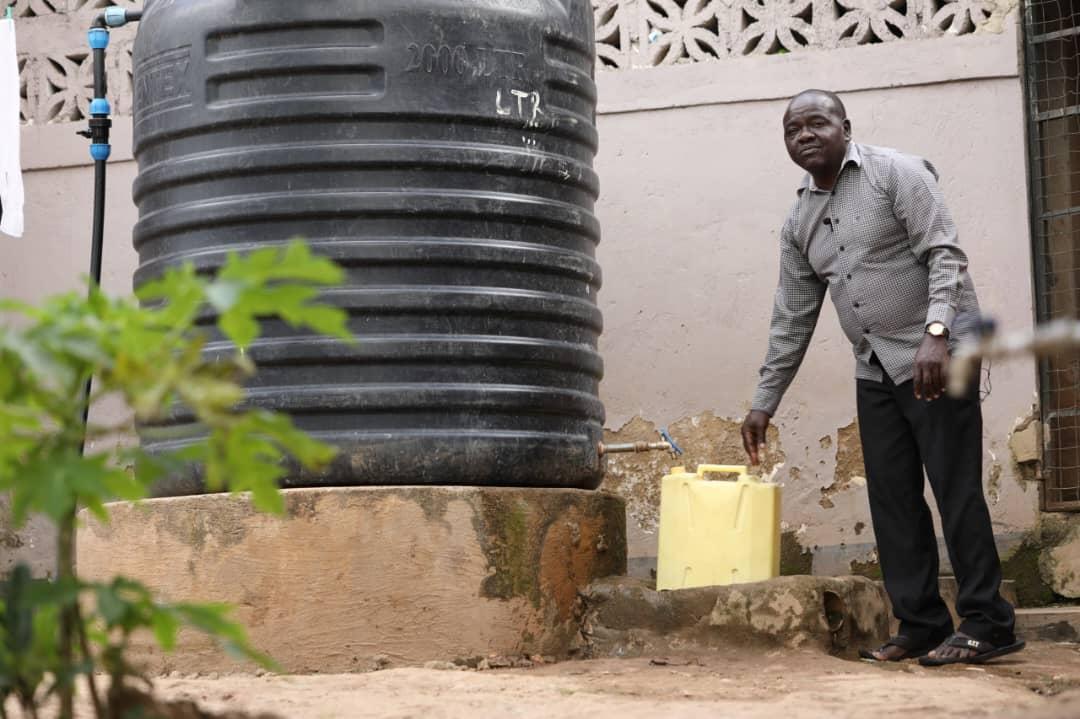Africa-Press – Uganda. In Mukono District, one of Uganda’s rapidly urbanizing areas, residents continue to grapple with limited access to reliable sanitation infrastructure.
But for a growing number of locals, including Patrick Odutu and Odongo Pius, this long-standing challenge has become an avenue for meaningful change, thanks to a targeted financial solution offered by Housing Finance Bank (HFB).
Patrick Odutu, a builder and boda boda rider in Mukono, had long aspired to build a functional toilet facility at his home.
Like many residents, however, he found that his income could not cover the costs. “It was through my brother that I learned about Housing Finance Bank’s Water Supply and Sanitation Solution,” Odutu said.
He secured a Shs5 million loan through the program, designed to assist households in improving access to clean water and sanitation. Though the amount was insufficient to fully cover construction expenses, support from colleagues helped him complete the project. Odutu now has a functioning toilet facility at home—a development he says has brought “dignity, improved health, and peace of mind” to his family.
In a similar story of transformation, Odongo Pius, a civil servant also based in Mukono, was struggling to complete rental housing units due to a lack of sanitation facilities.
His project had reached the ring beam stage, but without toilets, the rentals were unsuitable for occupancy.
“I received Shs5 million in two installments. The first Shs2.5 million helped me build a septic tank and install a rainwater harvesting system,” Odongo said. The remainder enabled him to complete the construction. His property is now nearly ready for tenants, bridging a crucial gap in sanitation and water access.
These individual stories underscore a broader issue in Uganda, where inadequate sanitation continues to hinder development in both urban and peri-urban communities.
According to development analysts, the lack of safe water and sanitation facilities contributes to widespread health problems, particularly in densely populated areas.
The Water Supply and Sanitation Solution was introduced by Housing Finance Bank as a response to these challenges.
It provides tailored financial support to households, entrepreneurs, and institutions seeking to improve sanitation infrastructure. The initiative also includes partnerships with companies such as WaterQuip, which supplies low-cost, durable sanitation and water systems.
This collaboration is particularly crucial for institutions such as schools, where poor sanitation has long compromised health and learning environments.
Through this model, beneficiaries not only gain access to funds but also to technical support and appropriate infrastructure solutions.
Annet Ssebuggwawo Nakigudde, Head of Microfinance at Housing Finance Bank, emphasized the social value of the initiative.
“Access to sanitation is a fundamental human right,” she said. “This product is about empowering people to create cleaner, healthier, and more dignified spaces for their families and communities.”
The bank has streamlined the application process, requiring basic documentation such as a national ID, project cost estimates, and proof of income. Customers can access the product at any of the bank’s branches nationwide.
While financial institutions are often seen as detached from everyday public health issues, this initiative shows how targeted banking products can support essential infrastructure development.
By enabling households and landlords to build toilets and install water systems, the program is contributing to improved public health and economic resilience.
With continued demand and growing awareness, similar models may become a key part of Uganda’s broader sanitation and development strategy.
For More News And Analysis About Uganda Follow Africa-Press






